- Home
- Tamara Leigh
FEARLESS: Book Two: Age of Conquest
FEARLESS: Book Two: Age of Conquest Read online
FEARLESS
Book Two: Age of Conquest
Tamara Leigh
www.TamaraLeigh.com
THE WULFRITHS. IT ALL BEGAN WITH A WOMAN.
* * *
A battle. A crown. The conqueror. The conquered. Medieval England—forever changed by the Battle of Hastings. And the rise of the formidable Wulfriths.
* * *
A CAPTIVE NORMAN
Sir Guarin D’Argent knew the danger of allowing a woman to turn him from his purpose, and yet he answered her cry across a bloody battlefield. Now he finds himself the lady’s captive among vengeful Saxons, weeks becoming months while his liege, Duke William of Normandy, subdues his new English subjects. Biding his time, Guarin plots an escape dependent on captivating his captor, a formidable quest with one more a warrior than a lady. But when his compassion is roused by the suffering of her people under Norman rule, the question of escape is jeopardized by the answer to who, exactly, is captivated—and in a conquered country, what hope there is for enemies beyond a kiss.
A DEFIANT SAXON
Her husband and young son slain by invaders, Lady Hawisa lives only for protecting her people. And revenge. While outwardly bending the knee to the usurper, she amasses rebels to send the conquerors back across the sea, along with the silver-haired warrior she never intended to take captive. Now that Guarin D’Argent has cause to wreak vengeance of his own and knows his captor is a Wulfrith, she dare not release him—just as she dare not succumb to his efforts to turn her from her purpose. But all changes when she is betrayed by one of her own. Will the struggle between the English resistance and the Normans find the two on opposite sides of the battlefield? Or might the Lord have other plans for them?
* * *
From a fateful encounter on the battlefield of Hastings, to a rebel camp deep in the wood, to the threshold of the Harrying of the North, Sir Guarin and Lady Hawisa’s tale unfolds in the second book in the AGE OF CONQUEST series revealing the origins of the Wulfriths of the bestselling AGE OF FAITH series. Watch for NAMELESS: Book Three releasing Autumn 2019.
For new releases and special promotions, subscribe to Tamara Leigh’s mailing list: www.tamaraleigh.com
FEARLESS: Book Two (Age of Conquest) Copyright © 2019 by Tammy Schmanski, P.O. Box 1298 Goodlettsville, TN 37070 [email protected]
* * *
This novel is a work of fiction. Names, characters, places, incidents, and dialogues are either the product of the author’s imagination or are used fictitiously. Any resemblance to actual events, locales, organizations, or persons, living or dead, is entirely coincidental and beyond the intent of the author.
* * *
All rights reserved. This book is a copyrighted work and no part of it may be reproduced, stored, or transmitted in any form or by any means (electronic, mechanical, photographic, audio recording, or any information storage and retrieval system) without permission in writing from the author. The scanning, uploading, and distribution of this book via the Internet or any other means without the author’s permission is illegal and punishable by law. Thank you for supporting authors’ rights by purchasing only authorized editions.
* * *
Cover Design: Ravven
* * *
ISBN-13: 978-1-942326-39-7
Contents
Author’s Note
Chapter 1
Chapter 2
Chapter 3
Chapter 4
Chapter 5
Chapter 6
Chapter 7
Chapter 8
Chapter 9
Chapter 10
Chapter 11
Chapter 12
Chapter 13
Chapter 14
Chapter 15
Chapter 16
Chapter 17
Chapter 18
Chapter 19
Chapter 20
Chapter 21
Chapter 22
Chapter 23
Chapter 24
Chapter 25
Chapter 26
Chapter 27
Chapter 28
Chapter 29
Chapter 30
Chapter 31
Chapter 32
Chapter 33
Chapter 34
Chapter 35
Chapter 36
Chapter 37
Chapter 38
Chapter 39
Chapter 40
Chapter 41
Chapter 42
Epilogue
NAMELESS EXCERPT
Pronunciation Guide
Glossary
Also by Tamara Leigh
About the Author
Author’s Note
Dear Reader,
* * *
Welcome to the second book in the Age of Conquest series. As with all series shouldering an overarching plot, there is some redundancy in storytelling. This is to orient readers who read the first books months earlier and to ground readers who enter the series out of sequence, allowing each story to stand alone. Of considerable benefit, pivotal events in successive books are experienced from different—often more informed—points of view.
* * *
In Merciless, the first book in this series, the story begins the morning after the Battle of Hastings when Sir Cyr D’Argent meets Aelfled on the battlefield. In Fearless, the story takes a step back to begin the night of the Battle of Hastings following the Normans’ victory over the Saxons when Sir Guarin D’Argent encounters Lady Hawisa Wulfrithdotter searching for her young son. Enjoy!
I returned, and saw under the sun, that the race is not to the swift, nor the battle to the strong, neither yet bread to the wise, nor yet riches to men of understanding, nor yet favor to men of skill; but time and chance happeneth to them all. ~ Ecclesiastes 9:11 KJV
Chapter One
Sussex, England
14 October, 1066
Danger. With each drag of her hem over dirt, through blood and other things heretofore unimaginable, it seeped into this bodily vessel, filling eyes, nose, mouth.
Danger. It chilled, making her soul a quaking thing desperate to catch hold of the unsullied hem of the Lord.
Danger. It pressed in on all sides, sweeping over the silent dead in their heaps, the groaning dying soon to join those above and below.
“Not my boy,” Isa Wulfrithdotter Fortier gasped as she veered away from a jumble of Saxons and Normans whose bodies were too great of size to include the one for whom she searched. “Lord, do I not find him, let it be he was never here, else returned to the wood…making his way back to safety…back to me.”
She halted. Clasping her short mantle at the throat to prevent the hood from falling and making a beacon of her hair, she stared.
A body slight of stature and clothed in red lay face down on one of greater height and breadth. But before her breaking heart could snatch back a soul straining to reach the Lord’s hem, she saw here was a Norman. Rather than long hair, his was cropped, the red he wore not of cloth but chain mail coated in crimson. Much blood, but not her boy’s.
“Praise You, Lord,” she whispered and swept her gaze around this portion of the battlefield she had been searching since shortly after her arrival upon Senlac where the forces of Duke William of Normandy had defeated the army of England after slaying its king.
In the hours since, most of the victorious enemy had retreated from the carnage to celebrate, tend injuries, and rest. However, there were enough moving across the ravaged meadow, searching for their own or desecrating the fallen by relieving them of valuables, that she and other Saxons not yet granted permission to retrieve their dead were in great peril—as was her maid, who had gone opposite Isa when the two ventured out of
the wood at twilight.
Might Aelfled have redeemed herself by finding Wulf alive and well? Or was he—?
“Nay, Lord,” she beseeched. “If my most precious one is here, let him not number among the dead.”
Telling herself she would not be ashamed of her fear even were her sire here, she continued forward, altering her course when it was blocked by bodies or she happened too near Norman scavengers who made her hand convulse on her dagger.
Once again, a figure more a boy than a man captured her regard. Pinned beneath a heavily-armored Norman, he had hair of a familiar length and color.
She ran and dropped to her knees. “Wulf!” His name left her lips a moment before her vision adjusted to the shadow across his face. These were not her boy’s unseeing eyes, not his cheeks, nose, mouth, and chin. Just barely a man, this defeated Saxon was another woman’s son.
“You served England well in putting down this animal,” she said, though she could not know it was true. It could have been a nearby Saxon who felled the Norman atop this warrior. “One less of his kind we must battle to hold what they would take from us. Be with God, faithful defender.”
Fingers trembling, she closed his eyes, then dropped back on her heels, clasped hands against nose and mouth, and thanked the Lord it was possible her son lived.
She started to rise, but voices speaking in the Norman tongue stilled her. Looking around, she saw two men moved in her direction, a third following at a distance.
Certain retreat would bring her to notice, she hunkered low and placed her face near the dead Saxon’s. Between sips of foul air, she swallowed to keep the contents of her stomach from climbing her throat, hoped she escaped the enemy’s notice, and prayed she would find Wulf alive.
“I can bear no more loss, Lord,” she whispered, “especially that of my son. If I am the last of the Wulfriths, I may break. If only for my departed sire, preserve his grandson.”
Blessedly, the Normans turned aside, as evidenced by laughter in which only victors lacking heart would indulge in the midst of slaughter that included their own—men who whimpered, groaned, and cried out as death danced around them.
She shuddered, certain such men would try to make her their reward for having survived the battle, just as they would Aelfled who, seven years younger, of smaller frame, and having little training in defense, stood less chance of escape.
Despite how enraged Isa was with her maid for allowing Wulf and his friends to slip away from Trionne Castle, she ached over the possibility Aelfled might become a plaything for the Normans.
“Lord, keep her safe,” she rasped. “Defend her life and virtue as you defend mine. Above all, protect Wulf.”
She sat back and peered at the dozens of Normans moving over the battlefield. Confirming all were distant enough to allow her to resume her search, she stood and began forging a path among the slaughtered to the base of a hill atop which a skeletal tree reached gnarled fingers to the heavens.
More suffering here than other places she had passed, the ground alive with men struggling to rise or crawl.
Here a Norman. There a Saxon. Another Saxon. Yet another.
“Find your boy,” she commanded and began ascending the hill. Halfway up, her trailing skirt so firmly snagged on something her forward motion could not free her. Dropping to her knees alongside a glistening stream of blood, she twisted around. And nearly cried out when she saw her skirt was caught by neither root nor rock.
She fell onto her backside and snatched at it, but the man held to the hem soaked in blood and other evidence of death that made her belly threaten to purge itself.
“Aid me,” he said in her language.
She paused in drawing her dagger, looked to his head propped on the shoulder of an extended arm, face framed by long hair and short beard.
“Be merciful,” he said. “I must die with my king. Pray…end it.”
A royal housecarle. Even were it possible the Saxon would recover, he did not wish to suffer the indignity of surviving King Harold whose life he had failed to preserve.
She knew what he required of her. She knew her sire would not hesitate. And from all the blood, the pale of his face, and the absence of a physician, it would be merciful. But her heart and mind protested, splaying her hand off the dagger.
“Lady,” he choked. “I would do it if I could.”
She shook her head.
He snapped his teeth, said between them, “Show me your dagger.”
“I do not—”
“You lie. Show me, Woman!”
She meant to refuse him but was moved by tears pooling alongside his nose and spilling over onto the dirt. Great his suffering, and greater if she left him like this, whether death circled for hours or the Normans made sport of their enemy while divesting him of mail tunic, gold necklace, rings, and leather boots.
He groaned, said more gently, “I am Edwin, Lady. Pray, your dagger.”
Beneath her mantle, she touched the deadly weapon opposite the one used for cutting meat, moved her hand to the latter, and drew it from its scabbard.
“A keen little blade,” he said, though were he to look upon her other dagger he would think this a dull thing. He released her skirt and moved his hand to his neck. “Here. The great vein.”
He will die regardless, she assured herself. It is not murder. It is mercy.
But horror over bleeding him was stronger than reason. “Forgive me, Edwin. I cannot.”
“Lady—”
“I cannot!” She took the hand with which he pointed the way to his demise, set the hilt in his palm, and folded his fingers over it. “It is keen, requiring less strength to do the deed than hold to my skirt.”
As anger flashed in moist moonlit eyes, she surged upright and stepped back. “Forgive me,” she repeated. “I…”
His lids closed, and the hand holding her dagger dropped.
Lest he merely lost consciousness he would regain and suffer more, Isa left the blade and turned away.
Feeling sticky grit on her fingers, she raised them before her face. Blood and dirt marked her, doubtless from when she placed the dagger in the housecarle’s hand—and likely gained from her hem.
She dragged up her skirt and, wielding the deadly dagger, cut away two hands’ width, baring ankles and lower calves. Thus, she would not be distracted by the horror of that bloodied material and other fallen warriors could not easily seize her.
Returning the dagger to its scabbard, she continued her ascent.
The nearer she drew to the tree, searching for a boy of good size though not yet eleven, the more quiet and still it became. The voices of the dying numbered fewer, movement of their pained bodies sluggish in places, absent in others. But that was due to greater blood and carnage here where the dead lay deeper. So deep her son might—
Feeling as if she walked the edge between everything and nothing, that slippery ridge threatening to tip her into inescapable darkness where one of Wulfrith blood did not belong, she gave her head a vicious shake.
Returned to this moment in which observation—not imagination—was required, she looked nearer on all. The fighting here had been momentous, as evidenced by the royal housecarle who wished to die with his king and other soldiers whose clothes, armor, and weaponry revealed neither were they ordinary housecarles who served thanes.
King Harold might have fallen here, but even had he not, this hill was too central to the battle for mere boys to reach it. Or so she prayed as she continued toward the tree past which she would begin her descent.
During her search, Isa had seen many horses sacrificed to carry riders through battle lines. Normans only she was certain, Saxon warriors not given to fighting astride though her sire had sought to persuade King Harold’s predecessor, King Edward, to adopt mounted warfare. Among the fallen here were more steeds transported across the sea, and partway down the hill one that appeared merely at rest where it lay with forelegs tucked and head up, its rider slumped over its grey-black neck and pale man
e.
Of a sudden, the horse turned its head in her direction, and it seemed all the light that could be found in this darkness shone from its eyes.
Realizing she had broken stride, Isa growled, “Wulf,” and continued forward.
“Non, destrier,” spoke one whose language and accent spun her around and up against one taller and broader than she.
Finding her palm empty, she jerked her elbow back and closed fingers around her dagger, but before she could draw it, the Norman gripped her arms beneath her mantle.
Unworthy! she silently denounced as her sire had done when he instructed the girl she had been in defending herself until finally he pronounced her otherwise. A dozen years later, now aged twenty and five, once more she proved unworthy. And might die when the plunder made of her was beyond tarnished.
Enough! she silently commanded. You will not dishonor your sire nor his name. Fight!

 FEARLESS: Book Two: Age of Conquest
FEARLESS: Book Two: Age of Conquest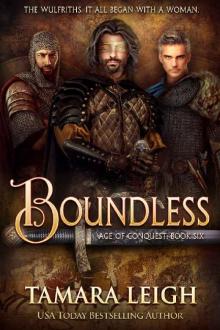 BOUNDLESS: A Medieval Romance (AGE OF CONQUEST Book 6)
BOUNDLESS: A Medieval Romance (AGE OF CONQUEST Book 6)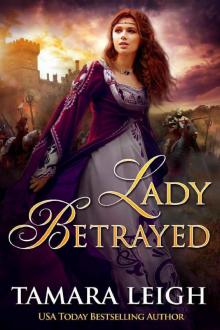 Lady Betrayed
Lady Betrayed Merciless
Merciless Nowhere, Carolina
Nowhere, Carolina Virgin Bride
Virgin Bride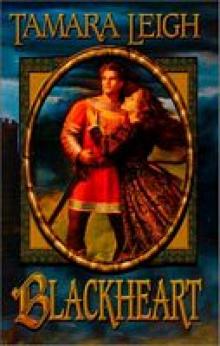 Blackheart
Blackheart Restless in Carolina
Restless in Carolina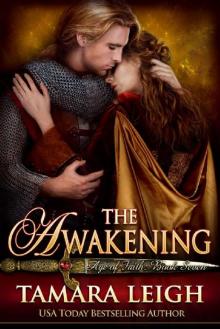 THE AWAKENING_A Medieval Romance
THE AWAKENING_A Medieval Romance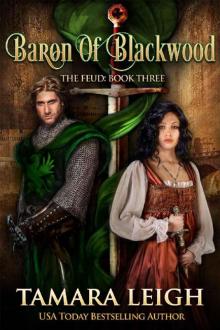 Baron of Blackwood
Baron of Blackwood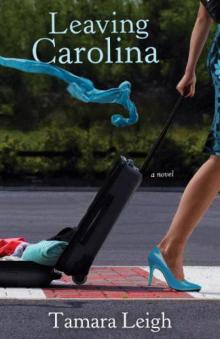 Leaving Carolina
Leaving Carolina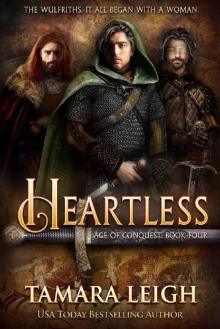 HEARTLESS: A Medieval Romance (Age of Conquest Book 4)
HEARTLESS: A Medieval Romance (Age of Conquest Book 4)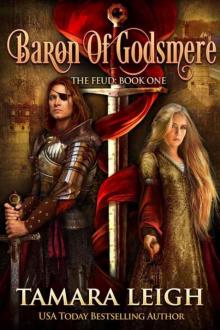 Baron of Godsmere
Baron of Godsmere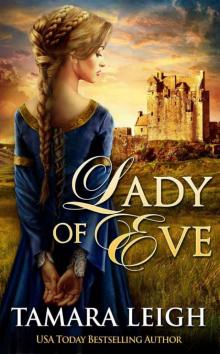 Lady Of Eve
Lady Of Eve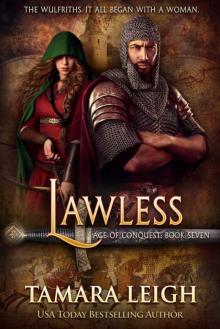 LAWLESS: A Medieval Romance (AGE OF CONQUEST Book 7)
LAWLESS: A Medieval Romance (AGE OF CONQUEST Book 7)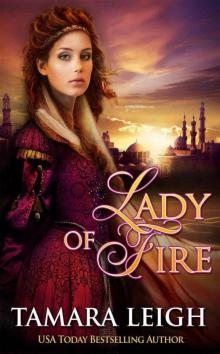 Lady Of Fire AKA Pagan Bride
Lady Of Fire AKA Pagan Bride The Yielding (Age of Faith)
The Yielding (Age of Faith) The Redeeming: Book Three (Age of Faith)
The Redeeming: Book Three (Age of Faith)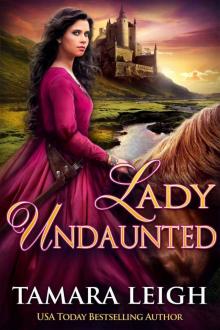 LADY UNDAUNTED: A Medieval Romance
LADY UNDAUNTED: A Medieval Romance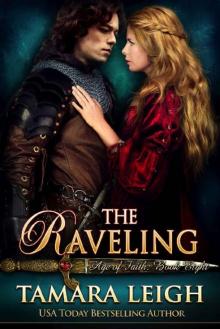 THE RAVELING: A Medieval Romance (Age of Faith Book 8)
THE RAVELING: A Medieval Romance (Age of Faith Book 8)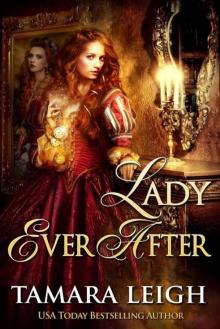 LADY EVER AFTER: A Medieval Time Travel Romance (Beyond Time Book 2)
LADY EVER AFTER: A Medieval Time Travel Romance (Beyond Time Book 2)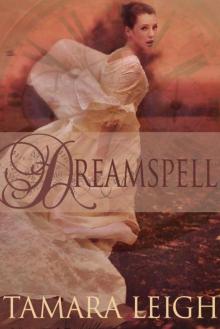 Dreamspell
Dreamspell The Unveiling (Age of Faith)
The Unveiling (Age of Faith)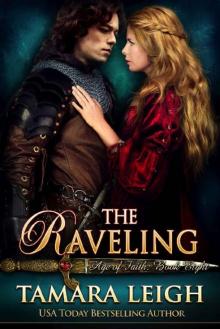 THE RAVELING
THE RAVELING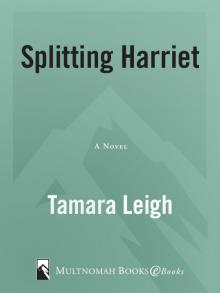 Splitting Harriet
Splitting Harriet Age of Faith 4 - The Kindling
Age of Faith 4 - The Kindling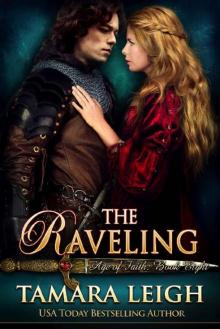 THE RAVELING_A Medieval Romance
THE RAVELING_A Medieval Romance Perfecting Kate
Perfecting Kate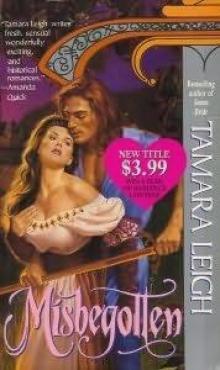 Misbegotten
Misbegotten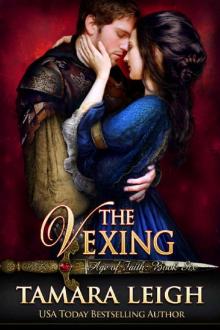 THE VEXING: A Medieval Romance (AGE OF FAITH Book 6)
THE VEXING: A Medieval Romance (AGE OF FAITH Book 6)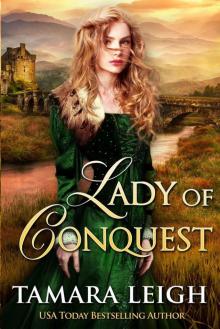 LadyOfConquest:SaxonBride
LadyOfConquest:SaxonBride